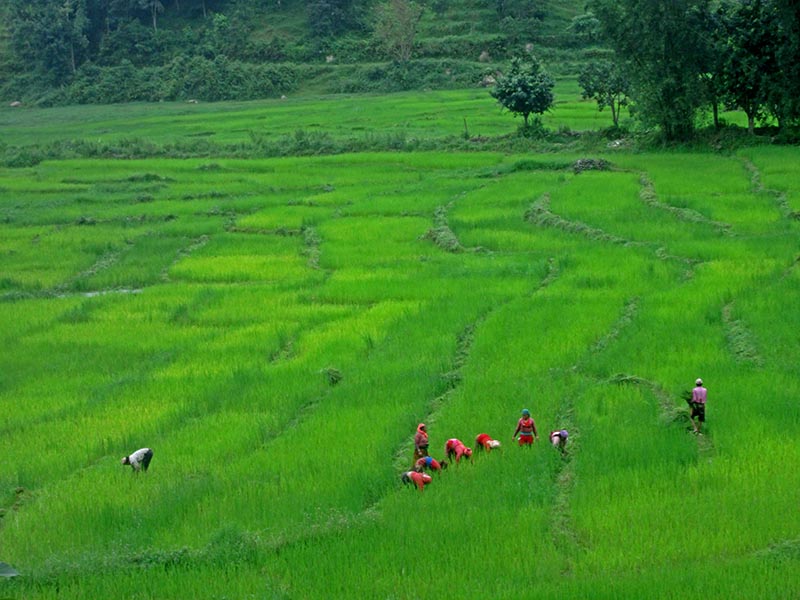Provide interest subsidy to farmers rather than grants: Study
Kathmandu, February 17
A joint secretary-led committee has called on the government to provide farmers with interest subsidy on loans rather than other forms of subsidies or grants.
The committee led by Tej Bahadur Subedi, joint secretary at the Ministry of Agriculture and Livestock Development (MoALD), found that distribution of grants and other forms of subsidies was not ‘fair’ and many farmers in desperate need of the government support were deprived of it. It has recommended that the government provide interest subsidy on loans to farmers seeking government support.
“Our study showed that beneficiaries of agricultural subsidies and grants provided by the government and other development agencies were primarily those who could exercise power or had ties with political leaders and bureaucrats,” said Subedi.
Such beneficiaries were getting similar types of subsidies or grants from multiple projects, exposing the problem of gross misuse of resources, says the report prepared by the committee. Yet those who wielded power or influence to bag subsidies and grants failed to give a lift to their businesses, according to Subedi.
“We believe disbursement of loans at subsidised interest rate will make farmers more accountable, which will help in the development of the agricultural sector,” said Subedi.
Nepal’s agricultural sector is currently receiving support not only from the government but an array of development partners and international and domestic non-governmental organisations.
The government must closely monitor financial and technical support that the agricultural sector is receiving, says the report. “This is because the support has not reached the needy farmers,” says the report.
What is also worrying is the practice of providing financial and technical support without conducting proper studies. “This has resulted in tepid progress of agricultural projects across the country,” said Subedi, adding, “The government and donor agencies must conduct adequate study on feasibility and necessity of the project before allocating funds.”
The study also found that a big chunk of foreign assistance going to the agricultural sector is being used to cover administrative costs rather than uplifting the agricultural sector and improve living standard of farmers.






